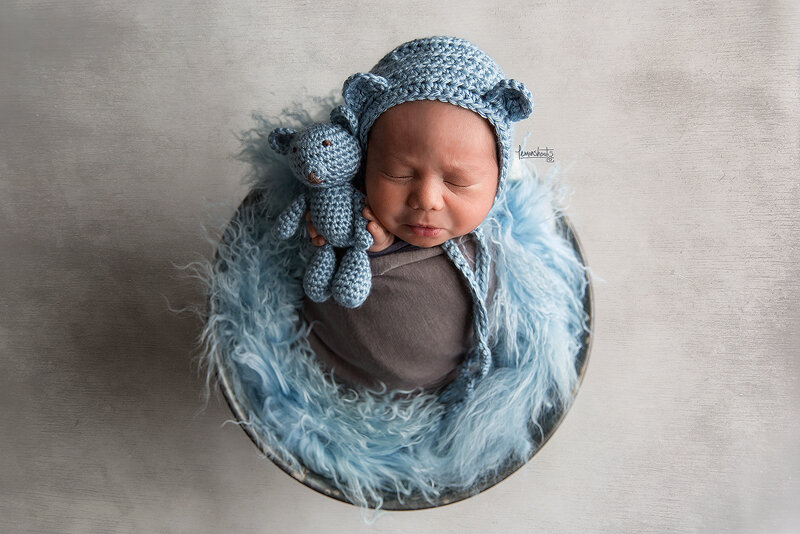The Holidays and Postpartum Depression: You Are Not Alone!
The holidays have always been a challenging time for individuals struggling with depression, but the combination of a newborn baby and postpartum depression adds another level of angst to the mix. The hormonal fluctuations you’re experiencing in the weeks and months after having a newborn are in control and are responsible for high highs and even lower lows.
Then, there’s the added pressure that you're supposed to be overflowing with holiday cheer because you have the miracle of a newborn baby to celebrate. Simply put, the holiday season can feel like a source of torture for mothers with postpartum depression, but I am here to tell you that you are not alone.
Take Advantage of Bay Are PPD Groups
Postpartum depression affects somewhere between 10% and 15% of all new mothers, and since these are only the reported cases - we can all assume it affects more women than that. Fortunately, the Bay Area has a wealth of high-quality resources for women experiencing postpartum depression (PPD) - Click Here for a list of options, or contact Postpartum Support International (PSI), 1-800-944-4773, to begin speaking to caring, compassionate PPD supporters.
We’re also fortunate in the Bay Area to have many highly-qualified therapists who specialize in PPD support. Start by speaking to your midwife, doula, or physician about who they recommend. Or, Click Here to start your search.
Self-care for Mothers with Postpartum Depression
If the source of your depression is the fact that you’re not holding a newborn baby in your arms, I compassionately invite you to read my post, Surviving the Holidays Without a Baby. I was there too (for several years) and know exactly how you feel.
Women experiencing PPD often feel guilt, shame, and shock because it is a completely unexpected experience. Some may not even realize they have postpartum depression and feel like they’re losing their minds. Spouses, close friends, and family members are more aware a new mother is experiencing PPD than she is. Remaining compassionate, strong, and offering plenty of support are key when this is the case.
Awareness is the first step
The first step to getting the help you need, is being aware you’re experiencing postpartum depression. Some of the early warning signs include:
Feeling sad, listless, and/or uninterested in normal activities even weeks after the baby is born
Crying spells, feeling inadequate or hopeless, or even regretting becoming a parent is more than norm than the exception
You’ve lost interest in activities, places, or even foods you used to enjoy
You are always too tired to think straight, even if the baby had a decent sleeping night
Worries about parenting skills are normal, but obsessive doubts, or feelings of complete inadequacy are not
You’ve had other major stressors in your life (a move, a job change, divorce/separation, a death of a family member or pet, etc.)
You have thoughts about harming yourself or your baby
You have extreme anger, rage, or verbally violent outbursts
If you recognize these signs in yourself or a new mom you love, reach out with gentleness, love, and a big open heart.
Chart the calendar and be flexible with your decisions
Chart the holiday calendar with all the proposed holiday-oriented events, and then make decisions accordingly. As much as you may love getting together with your out-of-state relatives, this might not be the year to take on crazy, holiday plane travel that can exacerbate your state-of-mind. Let them know you need to stay put, but that you’ll plan a non-holiday trip when everyone can spend more quality time.
Perhaps you should consider attending, rather than hosting an event. If you do opt to host, consider hiring a catering company, ordering delicious take-out, or purchasing deli-prepared foods to give yourself a break. This isn’t easy for Type-A, people-pleasing and/or first-time moms - but consider it a practice for your lifetime of needing to take care of you child’s and your own well-being above others’!
Ask for what you need (don’t expect mind reading)
Hey! This tip is a great one for all capable, empowered adults - but it’s especially important for women with PPD. You’re struggling, but your family is struggling along with you. Being clear about when you need help, what you need others to do (partners prefer detailed instructions!) and when you need alone time will help to smooth the choppy holiday waters. Expecting others to read your mind never works out in our favor.
Get a massage
A massage won’t fix your postpartum depression, but a once-only or regular massage sessions will certainly feel good at the time. If you’re able to make massage a regular part of your self-care routine, it can expedite postpartum healing and may increase bouts of feeling “more normal,” until your PPD begins to fade over time and with additional support.
Make sure you’re eating well
Skipping meals or eating processed snacks and junk food are detrimental to mental and emotional health. If grocery shopping, meal planning, and cooking are overwhelming for you right now - enlist the help of professionals.
My first recommendation is to contact a nutritionist specializing in postpartum nutrition to ensure your body and mind are being adequately nourished. If that isn’t an option, consider using a doorstep meal delivery service.
Postpartum depression is entirely normal, and there is nothing wrong with you. Hope is all around you, so reach out and grab a lifeline - whether it’s a support group, online support, direct treatment via a licensed therapist or counselor, or working with your women’s healthcare provider.
I wish you the very best, and hope you’re able to weather the holiday madness with as much gentleness and self-compassion as you can muster. I promise you that your newborn knows you are the very best mother you can possibly be right now, and loves you all the more for it.


